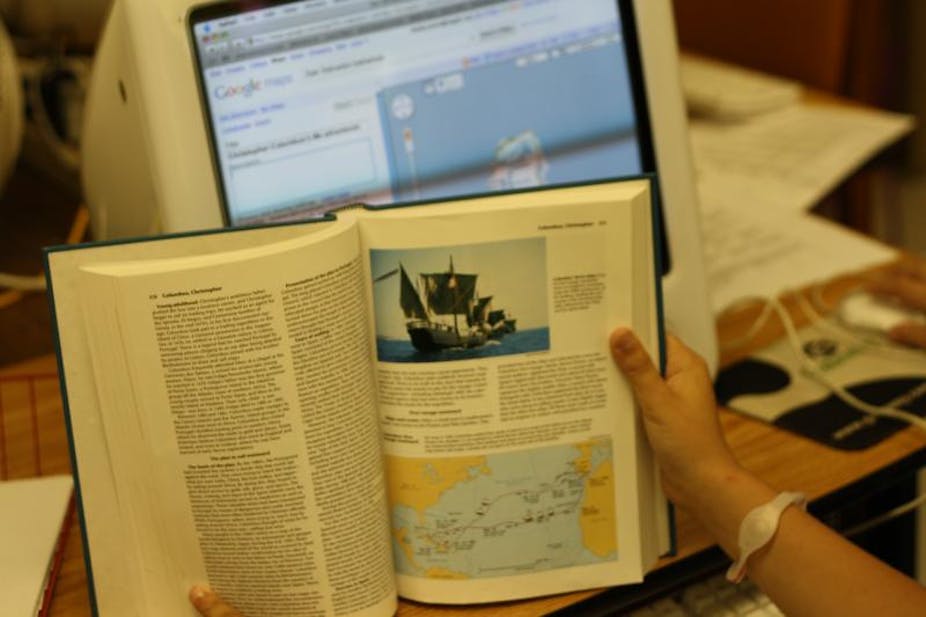Many university students use scholarly databases like they would Google, revealing an astonishingly poor understanding of how to refine searches for better research results, a US study has found.
The Ethnographic Research in Illinois Academic Libraries (ERIAL) Project, a two-year study of the student research process involving five US universities, included extensive interviews with students, librarians and other academics in an effort to better understand 21st Century student research habits.
The study, to be published by the American Library Association under the title Libraries and Student Culture: What We Now Know, revealed worryingly crude research skills among the students surveyed. Many were unwilling to ask university librarians for help – or even knew that they could ask.
“While students used the libraries at all five universities pretty extensively, librarians were absent from most students’ academic worldview. Students typically didn’t know what librarians did, or how they might help with academic work,” said Dr Andrew D. Asher, Scholarly Communications Fellow at Bucknell University and one of the authors of the study.
However, students who were introduced to their librarian by a faculty member were much more likely to ask for help and get better research results, he said.
The students surveyed often looked in journals or databases unsuited to their field of study and displayed a poor understanding of how to refine search results.
“Many (but not all) students are not gaining the information literacy skills in college that they will need in their future careers. This isn’t just about doing academic research, but also about being a savvy, reflective, and critical consumers of information,” said Dr Asher, adding that most students were working hard and doing their best in difficult circumstances.
“Students need better conceptual training on how search engines organise and retrieve information. These are really epistemological questions that I don’t think are being adequately addressed in many student’s academic experiences.”
Google-style databases
Some have argued that the study says more about poor usability of many academic databases than about student research skills and that “dinosaur databases” should adopt a more user-friendly, Google-style interface.
However, Dr Asher said that would not address the underlying problem – that many students do not understand how databases work.
“While the interface of Google and other similar search engines might be more intuitive, what’s going on behind the scenes isn’t intuitive at all, and very few students had a clear conception of how search engines work. This lack of understanding compounds the problem of building an effective search strategy.”
A global problem?
The US study did involve interviews with some international students and they did not seem to differ in any systematic way from the US students, suggesting the problem may be more widespread, said Dr Asher.
“I think the problems we observed in searching are not limited to students and probably reflect problems that are also present in the general population,” he said.
However, University of Sydney Librarian John Shipp said he thought that if the survey was done in Australia, it would show a different picture.
“Large US university libraries tend to emphasise collections rather than service to users,” and are often staffed by student workers out of normal hours, he said.
“By contrast, Australian and New Zealand university libraries have, in general, tried to ensure that professional staff are available whenever the library is open.”
Australian students were also more likely to have information literacy training embedded in their course curricula – an approach not yet common in the US, he said.
“There is a misconception that students must know their way around the internet as they are constantly using the technology. Research and observation indicates the opposite,” said Mr Shipp.
“Students may be savvy with the technology but their knowledge of the location and relevance of information resources is frequently minimal.”
Catherine Clark, assistant director of Research and Learning Support for Medicine, Dentistry, Education at the University of Western Australia said new students frequently overestimate their research abilities.
Compulsory training on how to find and evaluate information sources are now included in first year courses, she said.
“You can’t teach these things as a separate entity. It needs to be embedded in the program so students see it as part of their learning,” she said.
“In medicine, especially, it’s really important students are using peer reviewed material.”
Sophie McDonald, Information Services Librarian at the University of Technology Sydney (UTS), said her library encouraged students to seek help from librarians both in person and via social media and instant messaging.
UTS also runs workshops on skills like advanced database searching, mobile searching, Google skills and finding images, she said.
“[Google] has increased expectations that finding information should be easy, so library catalogues and databases have become easier to use. Students can now access the full text of journal articles via library links in Google Scholar and we focus more on helping them evaluate the information they find and using it ethically,” said Ms McDonald.
She said the US study highlighted how librarians in general “are failing to promote their services effectively.”
“How can students ask questions when they don’t know who we are and what we do? Librarians need to be more open and present in places where they can connect with clients – like using social media and mobile technologies,” she said.

